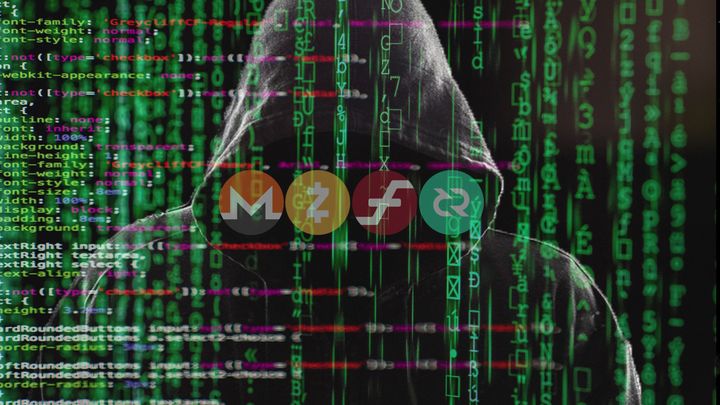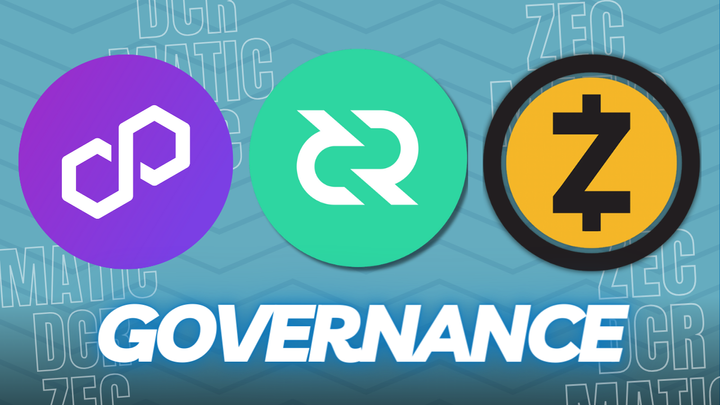this initiative arises from concerns that these assets may not meet the listing criteria of the platform, one that responds mainly to European and American regulations, hinting at a possible removal of these coins.
Binance, the world's leading cryptocurrency exchange, has placed prominent privacy coins, including Monero (XMR) and Zcash (ZEC), on its watchlist. The move, driven by concerns over meeting regulatory criteria, has raised alerts within crypto communities. With the threat of having their coins delisted, project stakeholders are hastily engaging in discussions to find common ground amidst the clash between regulatory pressures and privacy ideals. This situation underscores a critical juncture where Binance's regulatory stance poses challenges for privacy-focused coins and prompts a search for solutions within the crypto space.
The exchange revealed that it has added ten assets to its watchlist, including names such as Aragon (ANT), Firo (FIRO), Keep3rV1 (KP3R), Mdex (MDX), MobileCoin (MOB), Reef (REEF), Vai (VAI), Monero (XMR), Zcash (ZEC), and Horizen (ZEN).
According to the company, this initiative arises from concerns that these assets may not meet the listing criteria of the platform, one that responds mainly to European and American regulations, hinting at a possible removal of these coins. As per Binance's statement, the monitored tokens exhibit higher volatility and risks compared to others, and users interested in these assets must complete a questionnaire every 90 days to trade them.
“Tokens with the Monitoring Tag exhibit notably higher volatility and risks compared to other listed tokens. These tokens are closely monitored, with regular reviews conducted. Keep in mind that tokens with the Monitoring Tag are at risk of no longer meeting our listing criteria and being delisted from the platform.”

What are the implications?
The entire sector of privacy-focused cryptocurrencies experienced a decline, affecting significant cryptocurrencies across the market. Throughout the reporting period, well-established privacy coins such as Monero and Zcash saw decreases in the last week of 7% and 20% respectively. Other privacy coins also reported a significant value decrease.
Reuben Yap, Co-founder and project Steward for Firo, believes that the "Monitoring Tag" causes a lot of panic, especially since it did not specifically mention privacy as a problem. For him, the questionnaire is also a concern because it reminds operators every 90 days that those coins can be delisted or go to zero value. When talking about the market as a whole, he thinks that unfortunately this Binance move will fragment privacy advocates:
"There are many in the privacy sector who take a no-compromise approach and will not accept any degradation of privacy to comply with regulation. Even if the privacy loss is minimal, especially when dealing with a centralized exchange that already has your identity details. Their argument is: if you compromise, you will get sucked into their game and be captured by it."
Reuben affirms that the delisting would be a loss for the sector, since the presence of privacy coins on exchanges like Binance is a door for the mainstream:
"While I respect the adherence to the ideology, removing mainstream accessibility to privacy coins will keep privacy coins niche and further fuel the narrative that it's only used for illicit activities. This is to me the biggest threat to privacy tech, and it's not limited to just privacy coins, but privacy as a whole".
Despite the worry, Reuben is confident that the chances of delisting are low for FIRO. He stated that the project is on the "Compliant or Actively Working Towards Compliance" Binance's privacy coin category. This means that the Firo team has been working on a solution with Binance since September to maintain the coin on the platform.
On the flip side, Michae2xl, who oversees ecosystem relations at Zcash, revealed that leaders within the Zcash community are set to meet with Binance representatives this week. The project has proactively identified a potential solution—a proposed development of an "exchange-only" address type, aimed at limiting transfers to and from a designated transparent pool.
However, two significant challenges arise. Firstly, it remains unclear whether the core engineering teams have the necessary capacity and resources to undertake this initiative, given their current focus on internal organizational priorities. Secondly, the successful implementation of an "exchange-only" address type, depends on the collective consensus of the Zcash community. The community's willingness to support a network upgrade incorporating this functionality remains uncertain.
While the Zcash community doesn't perceive delisting as imminent, it is a general concern that preoccupies members from all sectors. All discussions about the future of Zcash, on Binance, are public and can be accessed here!

Moving Forward
In conclusion, Binance's decision to place privacy coins on its watchlist and its potential threat of delisting due to regulatory concerns, have sent ripples through the cryptocurrency market. The monitoring tag and mandatory questionnaire, add a layer of uncertainty for users and stir anxieties within crypto communities. The decline in the privacy-focused cryptocurrency sector highlights the immediate impact of regulatory pressures.
Reuben Yap's perspective underscores the dilemma faced by privacy advocates, torn between ideological principles and the need for mainstream accessibility. Yet, projects are urging for a solution between privacy coins and Binance due to the impact that the exchange has on the mainstream.
In light of the ongoing developments surrounding Binance's scrutiny of privacy coins and the potential for their delisting, we're keen to hear your thoughts. Do you believe compromises are necessary for mainstream adoption of privacy-focused cryptocurrencies? Or do you advocate for steadfast adherence to privacy principles, even if it means a niche presence in the market?
Share your perspective on this evolving situation and its implications for the future of privacy tech.






Comments ()